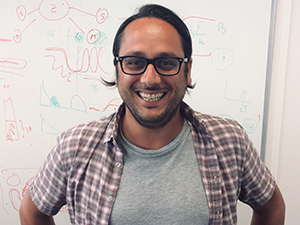A one-time immunotherapy treatment using a patient’s own immune cells has shown long-lasting benefit for people with advanced melanoma, a serious form of skin cancer, according to new five-year follow-up data from a pivotal clinical trial.
Results from the C-144-01 clinical trial, a global, multicentre Phase 2 study involving 153 patients across Europe and the U.S. were presented today at the 2025 American Society for Clinical Oncology (ASCO) annual meeting. The Royal Marsden NHS Foundation Trust was the lead UK centre for the international trial.
Harnessing the immune system
The trial explored the use of lifileucel, a type of immunotherapy, called TIL therapy, which harnesses the patient’s own immune system to fight cancer. The therapy involves isolating T cells from a site of cancer, expanding and activating these in a lab, before reinfusing back into the patient; these cells are then better able to recognise and attack cancer cells.
Patients involved in the trial had metastatic melanoma refractory to standard approaches, meaning that the patient’s cancer had not responded to other treatment options, including targeted therapies and checkpoint inhibitors, which are drugs that block checkpoint molecules and reactivate the immune system so it can better recognise and destroy cancer cells.
Before immunotherapy, advanced melanoma was almost always fatal within a year. For patients on the trial, tumour shrinkage was seen in nearly four in five (79.3 per cent) of patients overall. Among those who responded, almost a third (31.4 per cent) remained in response at five years and one in 20 patients (5.9 per cent) had a complete response, meaning they had no evidence of cancer.
Nearly one in five alive after five years
Some patients saw their responses deepen over time, improving from partial to complete response, even a year after treatment. The median overall survival was 13.9 months.
Nearly one in five patients (19.7 per cent) were still alive at five years and no new or delayed side effects related to the therapy were reported over the five-year follow-up.
The results, now representing the longest follow-up of a TIL therapy in this patient population, highlight the potential of lifileucel to provide hope for people who previously had few, if any, treatment options.
Building on these results, lifileucel is now being tested in combination with pembrolizumab, a standard checkpoint inhibitor, for use as a first-line treatment in newly diagnosed patients with advanced melanoma in the TILVANCE-301 Phase 3 trial.
Lifileucel was approved by the U.S. Food and Drug Administration (FDA) for the treatment of advanced melanoma last year and is the first cellular therapy to be approved for solid tumours. Regulatory review on the therapy is now taking place in Europe and the UK, which also paves the way for earlier use of TIL therapy in a patient’s treatment journey.
‘Six weeks after my TIL therapy the tumours had disappeared’
Zoe Phillips, 46, from Dorset was diagnosed with stage 4 metastatic melanoma in 2023 after previously being treated for skin cancer on her neck two years earlier. She was referred to The Royal Marsden where she able to join a first-line TIL therapy trial.
Zoe says: “Six weeks after my first TIL therapy treatment my scans showed that the tumours had completely disappeared. Before coming to The Royal Marsden I was told that I would probably die, so hearing that my treatment had been successful was amazing, I was over the moon.
“I come back to the hospital regularly for pembrolizumab immunotherapy treatment and currently still have no evidence of cancer. I can’t thank The Royal Marsden enough, this trial has saved my life and enabled me to continue making memories with my husband and daughter.”
Dr Andrew Furness, Consultant Medical Oncologist who led the trial at The Royal Marsden NHS Foundation Trust, said: “While current forms of immunotherapy have revolutionised the treatment of cancer in recent years, overall these benefit a minority rather than majority of treated patients. Results from this trial have shown that TIL therapy may change the outlook for people with advanced melanoma.
“We’re continuing our research into the use of TIL therapy, as well as other forms of cellular therapy, across a broader spectrum of cancers including advanced lung, liver, ovary, skin and testicular subtypes as well as soft tissue sarcoma.”
‘A transformative option in melanoma care’
Co-author of the study, Professor James Larkin, Consultant Medical Oncologist at The Royal Marsden and Professor at The Institute of Cancer Research, London, said:
“These significant results offer a compelling case for TIL therapy as a transformative option in melanoma care. The study demonstrates that for patients with few options left, a single infusion of lifileucel can provide a deep and lasting response and even complete remission in some cases. This marks a major advance in how we think about treating solid tumours.”
The C-144-01 clinical trial was funded by Iovance Biotherapeutics. Solid tumour cellular therapy research at The Royal Marsden is funded by supporters of The Royal Marsden Cancer Charity including a generous donation from Nationwide Building Society, and funding from The National Institute for Health and Care Research (NIHR) Biomedical Research Centre at The Royal Marsden NHS Foundation Trust and The Institute of Cancer Research, London.
.tmb-propic-md.jpg?Culture=en&sfvrsn=c25d2b2f_9)
 .
.
